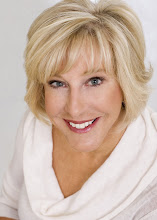Our need to be right colors our memories, our interactions, our decisions, and the filters through which we view the world. The ability to step back and understand this compelling need helps individuals and groups work with greater purpose and harmony--creating stronger connections with one another, with their shared purpose, and with their "best selves." Connective change depends on being able to recognize and acknowledge that others' views may be right--if only for them--or that occasionally you may be wrong.
Tuesday, April 26
Kathryn Schulz: On being wrong | Video on TED.com
I recommend the book "Being Wrong" by Kathryn Schultz. Her research on how we need to be "right," from the personal to the international level was really challenging. This book would make great reading for discussion groups of co-workers, business colleagues, or even family members. Hear the author talk about her premise in the following video, and let me know what you think.
Labels:
connective change,
Kathryn Schultz,
TED
Wednesday, April 13
Vital Voices
Last night I had the great privilege of attending Vital Voices 10th Anniversary Global Leadership Awards, entitled, “A Decade of Investing in Women to Improve the World,” at the sold-out Kennedy Center Opera House. The entire evening was moving, from Secretary Clinton’s passionate plea for justice for women throughout the world to the awardees’ moving stories of their struggles against impossible odds in addressing issues like human trafficking. The recent program for women leaders in the Middle East and Northern Africa where I shared my work on Connective Change was cited as an illustration of Vital Voices’ courage to go where it is needed when it is needed.
The Global Trailblazer Award for Voice of the Decade was awarded to Daw Aung San Suu Kyi from Burma. This was particularly meaningful for me because nine years ago I met with the members of her party in Yangon to help them with envision and strategize for her release, as well as a more democratic nation afterwards. She was released from prison later that week, although, as we know, not permanently. In her comments last night, Suu Kyi encouraged us to keep an eye on Burma and hold it accountable for implementing the inclusiveness it's leaders are promising.
The musical tribute that closed the ceremony was a choral piece, “Walk On,” written by Bono as a tribute to Aung San Suu Kyi. Talking about the 1991 Nobel Peace Prize Laureate, he said, “Suu Kyi, with an idea too big for any jail and a spirit too strong for any army, changes our view—as only real heroes can—of what we believe is possible. She’s a character of great grace. Her struggle has become a symbol of what’s best about our humanity and worst.”
From actors like Sally Field, journalists like Tina Brown and Wolf Blitzer, political leaders like Senator Kay Baily Hutchinson and the amazing awardees from all over the world, the message was clear: “A society that values its women will be healthy and strong. Women must have a vital voice in the decisions shaping their future.”
Working with purpose and harmony, the Vital Voices global partnership launches its second decade. I am proud to be on their team. See more at Schiller Center for Connective Change.
The Global Trailblazer Award for Voice of the Decade was awarded to Daw Aung San Suu Kyi from Burma. This was particularly meaningful for me because nine years ago I met with the members of her party in Yangon to help them with envision and strategize for her release, as well as a more democratic nation afterwards. She was released from prison later that week, although, as we know, not permanently. In her comments last night, Suu Kyi encouraged us to keep an eye on Burma and hold it accountable for implementing the inclusiveness it's leaders are promising.
The musical tribute that closed the ceremony was a choral piece, “Walk On,” written by Bono as a tribute to Aung San Suu Kyi. Talking about the 1991 Nobel Peace Prize Laureate, he said, “Suu Kyi, with an idea too big for any jail and a spirit too strong for any army, changes our view—as only real heroes can—of what we believe is possible. She’s a character of great grace. Her struggle has become a symbol of what’s best about our humanity and worst.”
From actors like Sally Field, journalists like Tina Brown and Wolf Blitzer, political leaders like Senator Kay Baily Hutchinson and the amazing awardees from all over the world, the message was clear: “A society that values its women will be healthy and strong. Women must have a vital voice in the decisions shaping their future.”
Working with purpose and harmony, the Vital Voices global partnership launches its second decade. I am proud to be on their team. See more at Schiller Center for Connective Change.
Labels:
Aung San Suu Kyi,
Bono,
Hillary Clinton,
Kennedy Center,
Vital Voices
Monday, April 11
Get Out and Give Back
A friend of mine, Jane Hess Collins, has launched an organization called Get Out and Give Back, to encourage people to do just that in whatever ways interest them in their own communities. Jane also practices what she encourages others to do, and so she spent last Friday at our local day shelter, called David's Place. Her account of it can be read at: http://www.getoutandgiveback.com/blog. Having been a volunteer and board member at its host organization, Carpenter's Shelter, I was really interested in Jane's insights. So few people who want to volunteer take the time to "walk in the shoes" of others, as Jane did. I encourage you to bookmark her blog and stay tuned to what Jane is learning as she inspires people to contribute in whatever ways make sense to them. Jane is a good example of Connective Change, working with purpose and harmony.
Subscribe to:
Comments (Atom)



